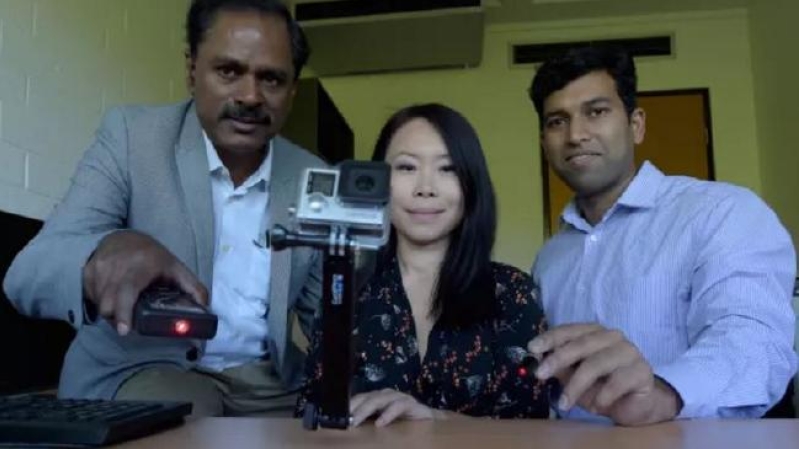
There might not be any kind of modern day medical devices that can assist the likes of the fictional Geordi La Forge “see” as in the Star Trek series, but this does not mean that there is no hope at all for the blind or visually impaired to be able to get around safer. Engineers from Australia have come up with a solution that might just relegate the ever popular white cane to go the way of the dodo. This particular electronic device is said to be able to assist the blind and vision impaired to navigate the surroundings and world around them. How does it go about doing so? Well, the electronic device will utilize lasers that will help pick out non-protruding obstacles which lie in front of a user’s path.
Sounds like it is some sort of echolocation inspiration, and it probably is, except that it will rely on lasers instead of bouncing soundwaves all over the place. The researchers over at the University of Melbourne think that this device could change the way the blind and vision impaired people move about. In fact, the new technology has been proven to be so effective in its trials, it might end up replacing the traditional white cane altogether. Needless to say, much more work needs to be done to make sure that it is truly foolproof, as we have seen how certain unforeseen situations in Tesla’s automatic driving system has resulted in a death during its trial phase, and so too, must such technology be put through its paces to prevent any unwanted accidents. I would say that the white cane should still be used in tandem with this electronic device just to be on the safe side.
The prototype will be able to pick up the presence of obstacles, where the user will then be given a warning of its proximity. With over 60,000 vision impaired people living in Australia alone and another 285 million around the world, a successful release of this yet unnamed device will certainly have far reaching, positive influence.
Associate Professor Elaine Wong, who is part of the University’s Department of Electrical and Electronic Engineering, has a personal stake in working on this new technology as Micah, her nine-year-old son, is vision impaired. Going down a flight of stairs can be rather tricky for those who are blind or cannot see properly, and this unique device will certainly ease the burden a whole lot.
Working alongside Vision Australia and Guide Dogs Australia, Wong decided to look into what kind of existing devices are able to assist the blind and visually impaired get around. This prototype seems to be the answer, as it relies on a bunch of cameras and lasers which will sweep the ground around, picking out dents, dips and drop-offs which can be potential hazards for the blind. Upon detection, an auditory or vibrating alert will be sent to the user. There is still a long way ahead, as the team needs to make the prototype smaller without sacrificing on its effectiveness, as well as having it function regardless of the light condition around. Ultimately, they hope that this device is as portable and affordable as possible so that it will be as ubiquitous as the white cane.
One advantage that the white cane has? It can be used regardless of the weather condition, and there are no battery life issues to worry about.







